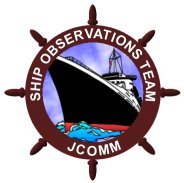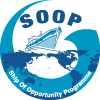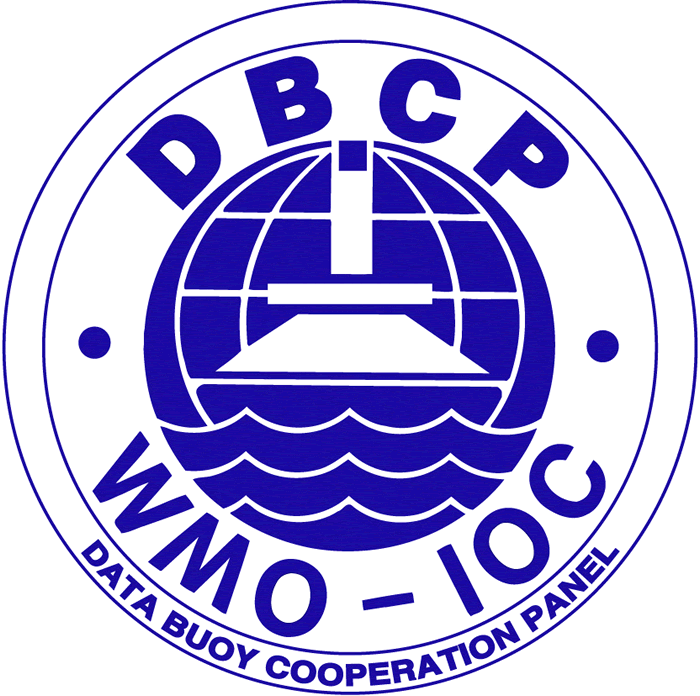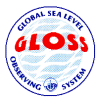|
| OBSERVATIONS PROGRAMME AREA |
 |
Programmes > AMP > MarProg > Programme areas >
OBSERVATIONS PROGRAMME AREA
The Observations Programme Area is primarily responsible for the development,
coordination and maintenance of moored buoy, drifting buoy, ship-based and space-based
observational networks and related telecommunications facilities. It also monitors the
efficiency of the overall observing system and, as necessary, recommends and coordinates
changes designed to improve it. It has inherited lead responsibility for a number of
important and well-established observational programs, which are managed by bodies that
now report through JCOMM
ACTIVITIES - | SOT |
VOS | ASAP | SOOP | DBCP | GOOS | Argo | GLOSS | JCOMMOPS |
| SOT
- The Ship Observations Team |
|
The work of the SOT
consists of a collection of very successful and enduring data collection
programmes, involving voluntary observing ships and ships of opportunity
operated through the following programmes which have supported a number of
research and operational applications over many years:
See the SOT
web site for additional information.
|

Focal
Points |
| VOS
- The Voluntary Observing Ships
scheme |
This
is the international scheme, first developed almost 150 years ago, by which ships plying
the various oceans and seas of the world are recruited for taking and transmitting
meteorological observations. VOS ships make a highly important contribution to the Global
Observing System (GOS) of the World Weather Watch (WWW), and increasingly to global
climate studies.. Relevant standard and recommended practices and procedures are contained
in Part III, Section 2.2.3 of the Manual on the Global Observing System (WMO-No.544) as
well as in Chapter 6 of the (provisional) Guide to MMS (WMO-471). Port Meteorological
Officers (PMOs) having maritime experience are appointed for recruiting voluntary
observing ships and assisting them in their meteorological work. The list of the VOS,
indicating name of ship, call sign, routes, type and instruments onboard as well as other
metadata, appears in the Ship Catalogue, WMO-47. See the VOS web site for additional
information.
VOSClim
is an ongoing project within JCOMM's Voluntary Observing Ships' Scheme. It
aims to provide a high-quality subset of marine meteorological data, with
extensive associated metadata, to be available in both real-time and
delayed mode to support global climate studies
|
Guide:
Chapter 6
List of PMOs
Ships
(WMO-47)
Format for national reports
Foreign ship inspection form
Focal
Points
PMOs |
| ASAP - The Automated Shipboard Aerological Programme |
The
ASAP in its present form began in the mid-1980s. It involves the generation of upper air
profile data from data sparse ocean areas using automated sounding systems carried on
board merchant ships plying regular ocean routes. The profile data are all made available
in real time on the GTS, for use by operational centres. ASAP is of vital importance to
both the WWW and GCOS. Several National Meteorological Services operate ASAP units, and
the programme is coordinated through the ASAP Panel, a component of the JCOMM Ship
Observations Team. Most of the soundings are presently from the North Atlantic and North
West Pacific Oceans, but the programme is also expanding into other ocean basins, most
notably through a new, cooperative Worldwide Recurring ASAP Project (WRAP). The ASAP Panel
publishes an Annual Report, giving programme status and statistics on data return and data
quality.
|
ASAP
Focal
Points |
| SOOP - Ship-of-Opportunity Programme |
The
JCOMM Ship-of-Opportunity Programme also makes use of volunteer merchant ships which
routinely transit strategic shipping routes. Ships' officers are trained to deploy
Expendable Bathythermographs (XBTs) at predetermined sampling intervals to acquire
temperature profiles in the open ocean. Selected data which accurately represent the
entire data profile are transmitted by satellites to shore centres, for insertion and
exchange on the GTS, and assimilation into operational ocean models. System performance is
monitored continuously and sampling strategies are adjusted in the light of new scientific
understanding, evolving requirements, in particular those of GOOS and GCOS, and new
technologies and systems, most notably Argo. The SOOP data are vital in particular to
seasonal to interannual climate prediction. The programme is managed by the SOOP
Implementation Panel (SOOPIP), also a part of the JCOMM Ship Observations Team, and
supported by a technical coordinator. The SOOP coordinator maintains a dedicated
SOOP website.
|

Focal Points |
| DBCP
- The Data Buoy Cooperation Panel |
The
DBCP, was established in 1985 as a joint WMO/IOC initiative. It was originally concerned
only with drifting ocean data buoys, but in 1995 expanded its activities to also encompass
moored data buoys on the open ocean. It addresses the requirements and needs for real-time
or archival data from buoys, both drifting and moored, coordinates buoy deployments
worldwide, and provides a forum for the exchange of technical and related information on
buoy technology, communications systems and the applications of buoy data, to both
operations and research. It coordinates its activities with other programmes such as the WWW, GOOS and GCOS. The implementation of
buoy deployments is coordinated at the regional level through various Action Groups. The
panel is supported by a full-time technical coordinator, and maintains its own DBCP web
site.
|

Focal Points
Info
on vandalism |
| GOOS - The Global Ocean Observing System |
GOOS
is sponsored by UN Agencies (IOC of UNESCO, WMO and UNEP) and receives help from FAO and
ICSU. GOOS is designed to provide descriptions of the present state of the sea and its
contents, and forecasts of these for as far as possible, and to underpin forecasts of
changes in climate. It is not solely operational, but includes work to convert research
understanding into operational tools. It is designed to produce products useful to a wide
range of users.
|
|
| Argo - A Global Array of Profiling Floats |
The
international Argo project plans to deploy and maintain a global array of around 3000
autonomous profiliny floats, to provide profiles of ocean temperature and salinity to
depths of around 2000 metres, as well as ocean currents at that depth, as vital support to
global climate studies and in particular seasonal to interannual climate prediction. Each
float reports via satellite every 10 days, and the data are freely available to all and
distributed in real time on the GTS. As a pre-operational project, Argo is managed by a
Science Team, and is supported by a full-time technical coordinator, who operates the
international Argo Information Centre, which is a part of JCOMMOPS. This
centre provides information on programme status, planned deployments, technical issues and
participants. It has links to the Science Team and Argo Data centres. It is expected that,
once operational, Argo will become a component of the operational integrated ocean
observing system coordinated through JCOMM.
|
Focal Points |
| GLOSS - Global Sea Level Observing System |
The
Global Sea Level Observing System (GLOSS) oversees the operation of, and collection and
management of data from a global network of tide gauge stations, in support of a variety
of operational activities in Members/Member States and also of global climate studies. The
system is coordinated by the GLOSS Group of Experts, which is now a component body of
JCOMM. Amongst other things, GLOSS operates a GLOSS Core Network (GCN) as well as regional
GLOSS networks; it provides tide gauges for ongoing altimeter calibration (GLOSS-ALT);
provides data and information to international scientific study groups such as the
Intergovernmental Panel on Climate Change (IPCC); and prepares materials for training,
outreach and research. GLOSS information, publications and data can be accessed through a
GLOSS website.
|

Contacts |
| JCOMMOPS - JCOMM Observing Platform Support Centre |
| The
JCOMM in situ Observing Platform Support Centre (JCOMMOPS)
is based on the existing DBCP/SOOP and Argo coordination mechanisms. The centre provides
essential data and tools, as well as a centralized information and technical support
facility, required for coordinating and integrating many of the existing operational ocean
observing networks under JCOMM. Through the activities of JCOMMOPS, the following goals
are addressed: (i) Facilitating decision making by programme managers (maintaining
information on requirements, analysis products showing how requirements are met,
information on telecommunication systems); (ii) Facilitating programme implementation
(assistance regarding GTS distribution, identification of available deployment
opportunities, assistance regarding standardization of real-time data telemetry formats);
(iii) Enhancing operational and monitoring aspects (compiling quality control information
and following up with solutions to correct identified problems, acting as a clearinghouse
on operational aspects of platform implementation, providing information on the status of
relevant observing platforms). |
|

 |
|
|
| MarPr Home |
News
Events
People
Publications
About JCOMM
Programme Areas
- Observations
- Data Management
- Services
Realated Programmes
- Satellites
- Capacity Development
- Natural Disasters
Operational Information
Links
Site-Map
Contact Us |
|